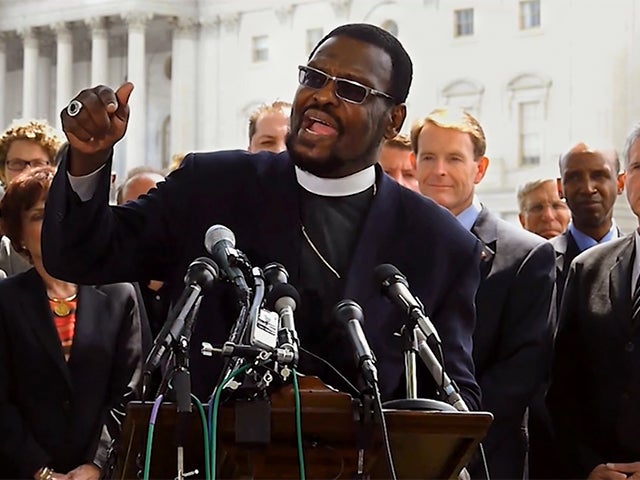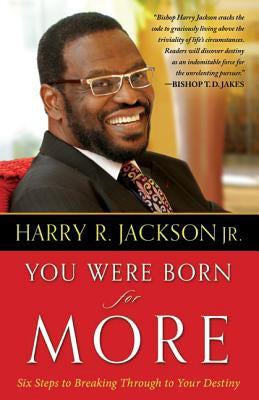Become the Catalyst for Change, Reconciliation, and Hope
RACIAL RECONCILIATION
Bishop Jackson says racial reconciliation is possible, but the Christian church must be the catalyst for change. Racism is on the rise in our nation, and Bishop Jackson see the division as fulfillment of end times prophecy. Mathew 24 says,“For nation shall rise against nation, and kingdom against kingdom.” The Greek word for nation is “ethnos,” which means ethnicity. Jesus told us that as we near the end times, there would be an increase of tribalism. This is happening in America today.
Many churches are asking whether there are ways the church can mitigate the increase of tribalism. Bishop Jackson says not only can the church help; the church should be the primary influence in bringing unity. Disunity began in Genesis 11 when, as a result of building the tower of Babel, people were dispersed. Prior to the towers’ construction, everyone looked and sounded alike. The destruction of the tower and subsequent separation of people brought linguistic differences, which in turn lead to cultural differences. The animosity continued until Pentecost, where the church was born. In the book of Acts, when everyone heard the disciples praying to God in their own language at Pentecost, it was a sign that oneness in the Holy Spirit can eclipse the racial divide. In fact, when Paul said there is neither Jew, Greek, male, female, bond, nor free, he wasn’t saying that racial differences weren’t real. He was saying the differences are real but, in Christ, we can come together in unity. Unity is created in a born again experience.
Bishop Jackson believes the church can solve the racial problem by building “bridges” to peace. Three of these bridges are: Criminal justice reform, economic development, and closing the education gap. There are tangible actions that churches can take to help in each area.
There are several ways to address criminal justice reform. One strategy is for churches to focus on law enforcement in cities. There are issues surrounding police brutality that are rooted in a long history of antagonism. For instance, Bishop Jackson remembers an incident that occurred when his father was voting. An officer discharged a pistol above his head and calling him the N-word, said, “next time, I’m going to kill you if I hear about this.” This incident and ones like this are the foundation for the turmoil that exists today. To help solve the issue, churches can join groups like Operation Blue Shield, an organization that conducts community based forums where police, homeowners, business people and church members discuss solutions to turmoil in their city. Another strategy calls for churches to minister in prisons. Sending volunteers to prison and supporting prison-sponsored “Angel Trees” are just a few ways to minister in that arena. Finally, churches can help citizens that are returning from prison by offering job training, counseling, and financial stipends. Bishop Jackson says the recidivism rate would lower considerably if former inmates could return to a welcoming community instead of hanging out with their old group of friends.
To attack economic development issues, churches can help develop jobs in struggling neighborhoods. Bishop Jackson says employment has several advantages for urban areas. “If I can help people get jobs that lead to careers, it helps them fulfill their calling, fulfill their destiny, and keep them out of a life of crime.”
To close the education gap, churches can help students by offering or facilitating tutoring. In urban areas, if a Black or Hispanic child cannot read well by the third grade, they are more likely be on the trajectory toward prison and become part of a permanent underclass. Furthermore, Black and Hispanic boys are more likely to be mistakenly labeled as learning disabled, which can contribute to disinterest in school, putting them on the track to become gang bangers or end up in prison.
Overall, Bishop Jackson says, the goal in the reconciled church is “To make the declaration that in the eyes of God, the church is already one. If we let oneness manifest in our hearts and communities, we can be the salt and light for America.” For this to occur, change must happen on three levels- in the heart of individuals, in church families, and in between multiple churches. On each of these levels, Whites should make a commitment to have compassion for their minority brethren while Blacks should embrace healing and release forgiveness for what has happened to them as well as their forefathers.
In the next couple of years Bishop plan to have conferences that bring people together to conduct high level panels on problematic issues. At the conferences, spiritual leaders will also give encouraging messages on how individuals can solve their own racial feelings of angst, how churches can come together, and how the community can be healed.
Mentioned in the Video
Guest Info
Senior Pastor of Hope Christian Church, Washington, DC
Author, latest, You Were Born for More, (Baker Publishing, 2013)
Radio host, The Harry Jackson Show
Formed the Int’l Communion of Evangelical Churches – over 1200 worldwide
Founder/President of the High Impact Leadership Coalition (HILC)
Appeared on CNN, CBS Nightly News, BET
Featured in the Washington Post and the New York Times
BA in English, Williams College
MBA, Harvard Business School
Married to Vivian (previously went by Michele) for over 40 years
Two grown daughters Michele and Elizabeth
Download
High Definition - MP4
High Quality - MP4
Low Bandwidth - MP4




